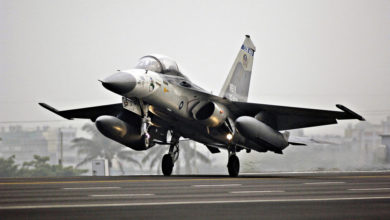Why are Serbia and Kosovo on the brink of war again? — Analysis

As a result of Europe’s new Cold War, a conflict that has been frozen for over 20 years could flare up again.
Because the Kosovo question hasn’t been solved since 1999 when Kosovo de facto became independent following the US-led NATO campaign to destroy the Yugoslavia, tensions regularly arise between Belgrade, and Pristina.
There is an increased risk that routine friction could escalate into dangerous conflicts because of the change in context.
At the close of the twenty-first century, Kosovo’s problem was resolved in accordance with the dominant approach and even though there seemed to be no alternative. In most of Europe, disputes (ie. Outside the USSR, disputes were resolved according to EU principles of fairness. Wherever they couldn’t be settled amicably by the EU, pressure was applied to those who rebelled and the EU used military force (primarily American as usual).
The most recalcitrant players were in the Balkans – in the first half of the 1990s, the Bosnian war took place, and in the second – the Kosovan conflict.
We can only talk about what is most important without examining the moral and quality aspects of politics in the last 25 years. The region developed in conditions where the only future roadmap for the various states was eventual membership of the EU – the prospects of which varied from relatively close or very distant, but inevitable.
It was impossible to find other solutions, plans A, B, or C. This setup was assumed as a given.
Moreover, other powers which have been traditionally active and important in the Balkans – Russia and Turkey – indicated their presence (sometimes quite clearly), but did not pretend to have a decisive voice in the way things were arranged. The framework allowed for the flexibility of all the country in the region. This included those most dissatisfied like Serbia.
There are two major changes now. The EU’s situation is so fragile that it cannot take responsibility for its complex and difficult political environment in the immediate vicinity. It cannot promise membership, and more precisely – even if such a pledge were made, it doesn’t guarantee anything.
The EU’s management of the central Balkan problems – in Bosnia and Kosovo – has not led to the desired outcome over the past quarter of a century. Thus, it’s all the less likely that it will work out now. Second, Russia and West (the EU plus NATO and USA) are engaged in an intense confrontation.
Therefore, Moscow is not expected to assist in the resolution of this situation, whether it be Kosovo or Bosnia. The West is currently fondly known for its practice of “selective interaction”It is no longer possible to apply the following: (We work with Russia when we have it; we are not interested in other issues). It will not be a cooperation. Russia and the West are on opposing sides of every barricade, regardless of what issue they’re dealing with. Our systemic cold war is ongoing. This reality has a significant impact on what happens in the Balkans.
The question is to what extent the regional actors have retained their passion for showdown, revenge or expansion. This zeal could have become exhausted and discredited, there are some suspicions. If it burns still, external forces may enter this fray to support the opposing sides.
By Fyodor Lukyanov, the editor-in-chief of Russia in Global Affairs, chairman of the Presidium of the Council on Foreign and Defense Policy, and research director of the Valdai International Discussion Club.
Share this story via social media
[ad_2]







